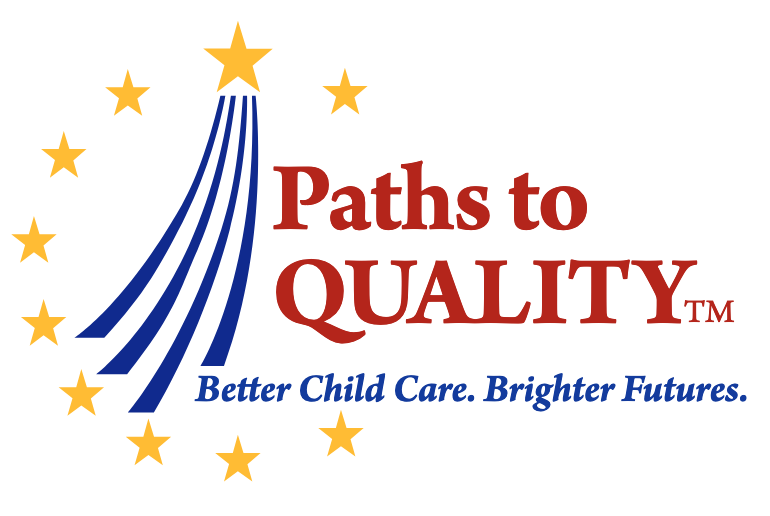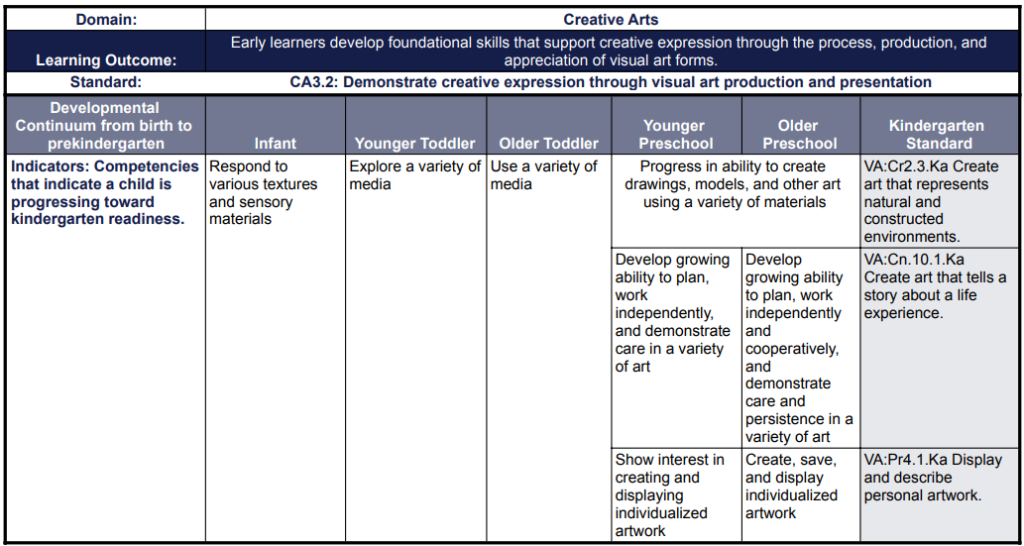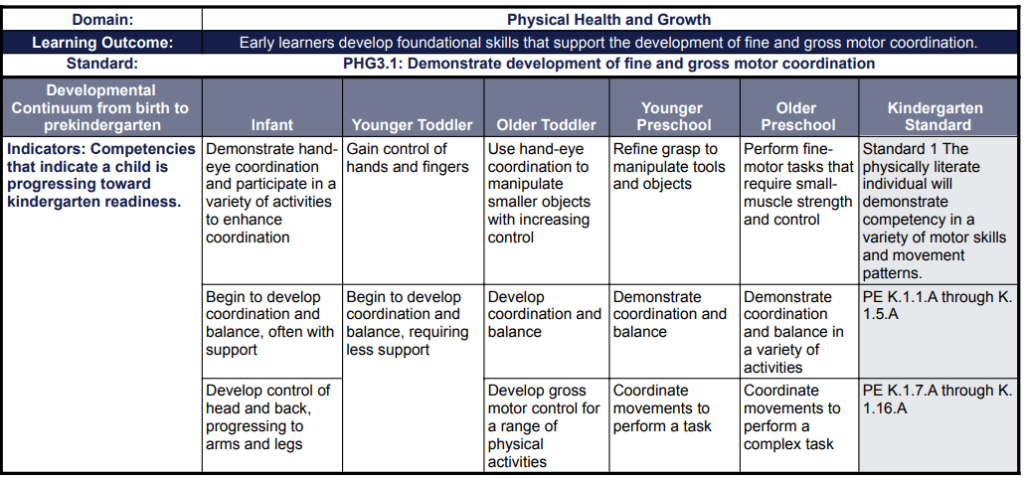Stephanie McKinstry of Caterpillar Clubhouse Nature Preschool talks with Town Square’s Lizz Nolasco about her experience working with a coach through Indiana’s quality rating and improvement system.
If you’re interested in receiving coaching, either one-on-one or as part of a group, contact SPARK coaches here: SPARK Coach Supports – SPARK Learning Labs
SPARK Learning Lab is excited to partner with Calm to support Indiana early childhood education and care and out-of-school professionals by providing access to a free premium subscription to Calm through February 2026. Calm is open to individuals who own, work or volunteer in an Indiana-based early childhood education or out-of-school care program, as well as the household family members and dependents of those individuals.
Fill out this short form to access a FREE Calm Premium subscription through February 2026.
Family child care providers are more likely than most early childhood educators to work with mixed age groups, which can broaden the differences in abilities to plan for. But all children develop at different rates, with different interests and abilities, so even when an activity is only for three-year-olds, the particular three-year-olds who are participating are going to determine the types of adaptations and levels that are planned for.
When writing a lesson plan, including adaptations for children who need more assistance or more challenging stimulation can seem daunting at first, but soon will become second nature. Consider the following factors when planning appropriate modifications– we’ll test it out on a planned activity after:
- Safety first! Are the children using risky tools (hammers/nails, hot glue, etc.) that could be misused if a child’s attention, impulse control, or motor skills are not at a certain level? Consider partnered work, having one “helper,” adapting tools (loop scissors instead of regular scissors, tacky glue instead of hot glue), or working hand-over-hand.
- Look at your goal for the activity: have any of the children already accomplished it? Is it too far out of the zone of proximal development for some children to attempt? Are there smaller steps those children can take to meet that goal?
- What can children who finish early do? Have a plan for the ones who lose interest early as well as the ones who want to keep working and experimenting.
SAMPLE ACTIVITY & INDIVIDUALIZED ADAPTATIONS:
Audience: Children 2-5 years old
Activity: Tissue paper collage on contact paper
Learning Outcomes (from IN Early Learning Standards):
Adaptations: Children will be offered pencils and loop scissors, as well as traditional safety scissors, to create and cut out designs from tissue paper. Children will be encouraged to tear the paper by hand if not yet able to use scissors consistently. Children may work with the contact paper at easels, on the table, or on trays on the floor to allow optimal body positioning. Children can work until finished, and those who finish first/early may wash up and move on to open centers for free play.
Like most other states, Indiana has published Early Learning Standards to help early childhood educators understand what children should be learning as they grow. This document can be intimidating at first for providers who want to use it for their curriculum planning. In this three-part series, we will look at:
- Finding what learning is already naturally happening in your environment
- Creating a lesson plan to address learning content that may not be present
- Sharing with families how and what children are learning in your program.
This series is designed to be brief; each video is only about five minutes long and will help providers identify meaningful learning experiences in their environments.
In the Paths to Quality Standards for Participation, there are 13 standards that family child care providers must meet to move from level 1 to level 2. One practice states:
Each child feels safe, accepted, and protected. This is supported by daily practices that reinforce respect for people, feelings, ideas, and materials.
What does it mean to feel safe, accepted, and protected? What are daily practices that support children in feeling this way? Paying attention to each child and taking advantage of time to connect, even though this is difficult in group care, is a great start. Especially during caregiving times like feeding and diapering/toileting when children are at their most vulnerable. In the RIE philosophy of infant caregiving, this is called “want something quality time.” When the adult has a goal, but it can be accomplished mutually with the child’s cooperation, and the time can be spent in a pleasant interaction with the child rather than rushed through.
This is in addition to “want nothing quality time,” when adults spend time playing with, talking to, and observing children without another agenda. Helping children feel safe also involves self-reflection. Knowing how to handle children’s challenging behaviors is an ongoing process and requires some self-reflection to ensure that adult responses are compassionate and appropriate and demonstrate to the child that the adult isn’t a threat. It’s easy to forget that adults are many times the size of a young child and can easily feel frightening to them. As Circle of Security says, the adult must choose to be “bigger, stronger, wiser, and kind.”
Respect for ideas is simply listening to children and helping them have discussions together in a way that allows for free expression of thoughts without ridicule.
Respect for materials might be more complicated. One of the greatest frustrations in family child care can be broken materials! But daily practices that can support respect for materials might include helping children choose the right materials for their chosen activity (throwing sponge balls instead of blocks), and teaching and modeling appropriate use of materials such as paintbrushes and markers.
Reflection:
- How can you tell when a child is feeling safe?
- What frequent occurrence is most likely to dysregulate you? Spilled paint? Children squealing? How can you proactively support your own wellness and calm?
This is the first of three videos about planning for learning in family child care environments. Part 1: Finding What’s There offers opportunities to practice finding the early learning standards in action, and an invitation to reflect on the learning that is already happening in your family child care home.
Before viewing, please have the 2023 IN Early Learning Standards open on your device or printed.
 Paths to Quality™ conecta a profesionales como usted con las herramientas y el apoyo necesarios para crear entornos de aprendizaje de alta calidad para los niños. Como profesional de la primera infancia o la juventud, usted trabaja arduamente para garantizar que los niños bajo su cuidado estén seguros, sanos y aprendiendo. Usted desempeña un papel fundamental en la capacidad de los niños para tener éxito. Al brindar atención y educación de alta calidad, usted demuestra su compromiso con estos niños y su éxito a largo plazo. Usted se está asegurando de que cada niño esté listo para la escuela y preparado para la vida, y Paths to Quality™ quiere reconocerlo y recompensarlo por eso.
Paths to Quality™ conecta a profesionales como usted con las herramientas y el apoyo necesarios para crear entornos de aprendizaje de alta calidad para los niños. Como profesional de la primera infancia o la juventud, usted trabaja arduamente para garantizar que los niños bajo su cuidado estén seguros, sanos y aprendiendo. Usted desempeña un papel fundamental en la capacidad de los niños para tener éxito. Al brindar atención y educación de alta calidad, usted demuestra su compromiso con estos niños y su éxito a largo plazo. Usted se está asegurando de que cada niño esté listo para la escuela y preparado para la vida, y Paths to Quality™ quiere reconocerlo y recompensarlo por eso.
“If we are not working on getting better then we are kinda stagnant and not growing … it is better to get in on front end of a program than the tail end so when a new program comes through we try to jump right on that and get our staff excited about it to be leaders.”
“We already knew we were operating at this higher level, why not have the validation from something like Paths to QUALITY, so that it was more than just us saying we are a strong program but having Paths to QUALITY backing us up as well.”
“I live in a low income area and I have had so many times since I started that I have had interviews set up with parents and I get no reason why they don’t show up. I wonder if some of them just figured out where I’m at and they won’t come. I’ve had someone say that on the phone one time – I know where that’s at. They don’t like the area…I thought it would give me some credibility.”
“I think we would like to get some recognition and also about what we do and maybe in return parents will be calling us and saying “oh, you are this level, we appreciate what you are doing so that is why I want my child to come to you.”
“For me, I joined PTQ because parents are looking at all types of daycares and if you want to stand out, you have to do something to stand out. Participating in whatever you can,
accreditation, whatever. It gives the parents a little something more to look at than just someone watching their kids. That this is what they do, this is their profession, they want to stand out with everything and with PTQ that helps us better our programs and our children so that it is beneficial to us and our programs.”
“…I like that you do get the benefits of moving up, leveling up and you do get that bonus where you get to go through the catalog because we run on peanuts trying to dish out for nutritional foods and things. We don’t have a lot of money to spend on the kids and that little incentive is good too. So it’s nice.”



